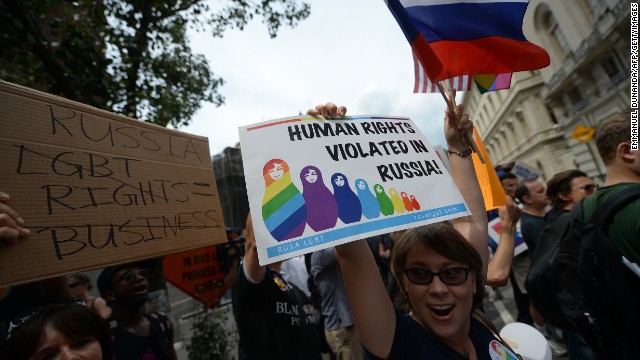Story highlights
- Legendary pole vaulter Sergei Bubka says the Olympics can save a generation
- Bubka is bidding to become International Olympic Committee president
- He says sport can help children away from developing health problems
- Bubka also says Olympic sport must build on equality of London 2012
The Olympics must use its global reach and immense popularity to help save a generation.
That's the mantra from one of the men bidding to become to the next president of the International Olympic Committee -- Sergei Bubka.
The legendary Ukrainian pole vaulter, who won Olympic gold and broke the world record 35 times, says sport must act now to pluck today's youth from the clutches of health problems.
"We need to save the generation," Bubka told CNN World Sport ahead of the start of the World Athletics Championships in Russia on Saturday. "We need to bring them to sport.
"Today they have so many different interests. They have so many distractions, and we see a lot of health problems: obesity, diabetes.
"And we need to encourage them, not just to play sport in front of the TV, to use social media computers. We need to use this to engage them to sport, to make their lives better.
"When we look to the age of (our) sport audience it's around 50 years old; it means we need to work in this direction."
Bubka's passion is clear, as is his conviction that the outgoing president Jacques Rogge -- who relinquishes his role in September -- has done much to encourage youth participation in sport.
The Youth Olympics, which features participants aged between 14 and 18, debuted in 2010 and is now an established part of the calendar.
A key part of Bubka's manifesto is using modern methods to promote sport among the younger generation.
"We must go to the modern way, to use social media, to engage society, to engage the youth, to bring them with us to be active sportsmen," he said.
"This is a very important, key moment. This is a time not to lose a generation and President Rogge is leaving a fantastic legacy, and financially we are very healthy.
"It's now time to invest, to invest in the future, to integrate the movement to different parts of society. To change the life of the youths, and of course to continue to build a successful Olympic movement for the future."
To this end, Bubka acknowledges the huge costs involved in staging the biggest sporting spectacle on the planet provide a significant challenge for most modern hosts.
London's eventual spend was an estimated ┬Ż9 billion ($13.9 billion) with the next host, Rio de Janeiro, setting aside $2.45 billion for its organizing committee and a further $10 billion to be spent by the government on infrastructure, according to its official website.
Bubka says it is vital to try and drive down costs so that the Games don't become an event that is out of reach for countries in poorer parts of the world.
"Of course the cost of the Games today and for tomorrow, for the future it will be prohibitive," he said. "We need to look not to exaggerate, not to expand the Games when it's become really heavy.
"For that we try to control the size of the Games, we try to control the cost of the Games to make them cheaper, and more possibility for different parts of the world to get the opportunity to host the Games and promote the values in different parts of the world.
"It's a very important issue and it will be one of the priorities for the movement."
Another priority is to stamp out cheating in all its forms. Athletics has been tainted by a string of doping scandals in recent weeks.
Former world champion Tyson Gay, from the United States, and Jamaica's Asafa Powell tested positive for banned substances in July, along with another Jamaican sprinter -- Sherone Simpson.
This on the back of a failed test due to a banned diuretic from Jamaican Olympic champion Veronica Campbell-Brown, who will also likely miss the world championships in Moscow depending on the outcome of her case.
Bubka is unequivocal in his stance.
"Regarding doping, of course it's a very sad, and very negative example," he said. "And in some cases we can understand it.
"The system, which is developing, and also the role of the international federation, of WADA (World Anti-Doping Agency) is getting stronger and stronger. I can see this positive trend.
"We eliminate the cheaters. We protect the honest athletes. We will not keep any excuse to anyone. This is a very important issue."
In the wake of those glut of positive tests from his country, six-time Olympic champion Usain Bolt was quick to declare himself clean.
And Bubka says the fastest man alive sets a perfect example for others to follow. "Usain Bolt is an amazing athlete, it's unbelievable talent," he said.
"For myself, I first saw him compete in 2002 in Junior World Championships and already at that time I realized this is a future great, great champion.
"And of course for sport in general, and of course for athletics, he's very, very respected, and a very big champion and star. This is a really good model to promote sport and get used to follow good example."
















